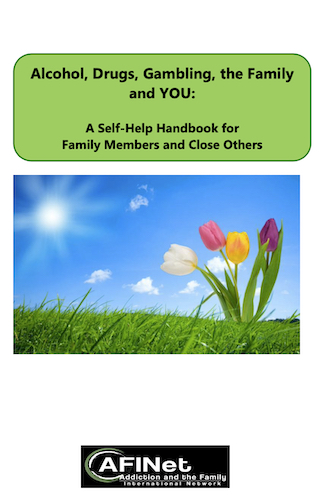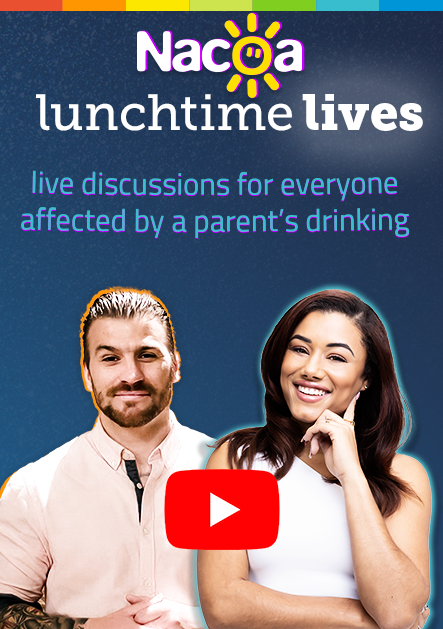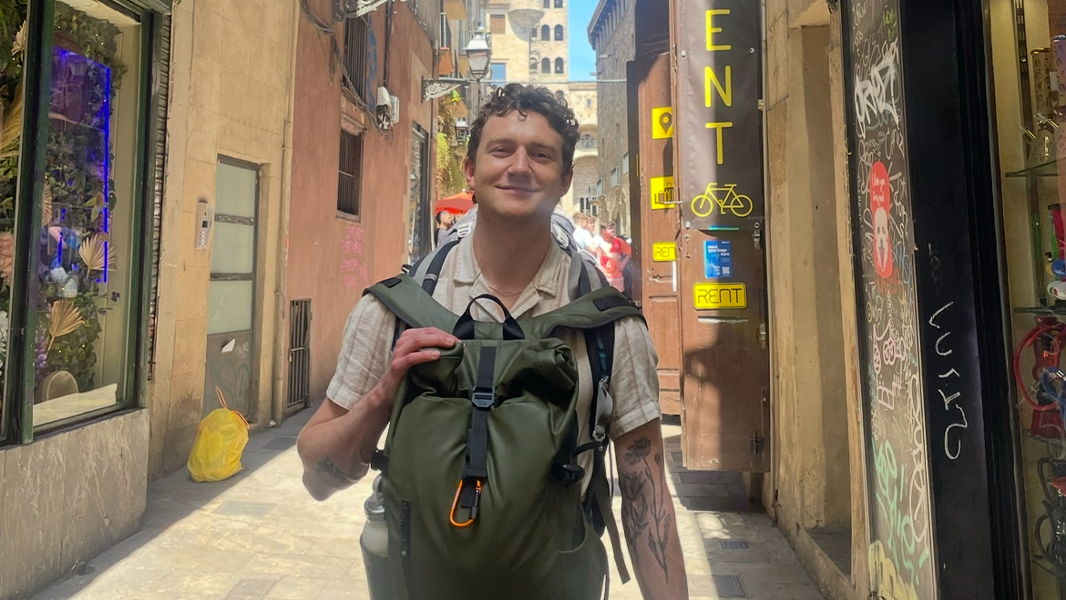

Growing up fast: The adventures of a child of an alcoholic
The only time I can remember falling out with my partner was in a budget hotel in Narbonne, in the south of France.
It was the start of our holiday interrailing around France and Spain.
She was in charge of accommodation, and I was responsible for organising transport. We had woken up that morning in Paris, and were supposed to make it to Barcelona by nightfall.
This should have been achievable. The TGV whisks you from Paris to Barcelona in around 6 hours 45 minutes.
I always find long-distance train travel to be a pleasant experience, watching the world go by outside the window while getting lost in an audiobook.
Unfortunately, on our day of travel there were no trains running between Lyon and Barcelona.
Changing travel days wasn’t an option: my partner, Emma, had already booked the hotels, and changing them would require re-doing our entire itinerary.

Imagination versus reality
No matter, I thought. As a veteran of several thousand-mile hitchhiking adventures, I felt confident that if we got as far south as possible by train, we’d be able to stick out our thumbs and rely on the kindness of strangers to carry us from Provence to Catalonia.
It will be easy, and fun! I said to Emma, who was sceptical.
I imagined us watching the sunset over the Pyrennees from the cab of a long-distance lorry, or making conversation in rusty French with a retired musician who happened to be driving straight to our street in Barcelona.
I had spoken to Emma before about my formative time on the road as a teenager, sleeping rough in car parks and enjoying the hospitality of strangers.
But this wouldn’t be like that, I said. It is only one road, and we can hop from service station to service station in no time. Eventually, she agreed to my plan.
The problem was, my plan was completely insane.
By the time we got to Montélimar from Paris, which was the furthest the trains could take us, it was mid-afternoon. We managed to get three lifts over the next six hours, taking us to a motorway services just outside Narbonne.
It was 10.30 in the evening, outside it was cold and dark, and I was still insisting that we could make it the remaining 300 km to Barcelona that night.
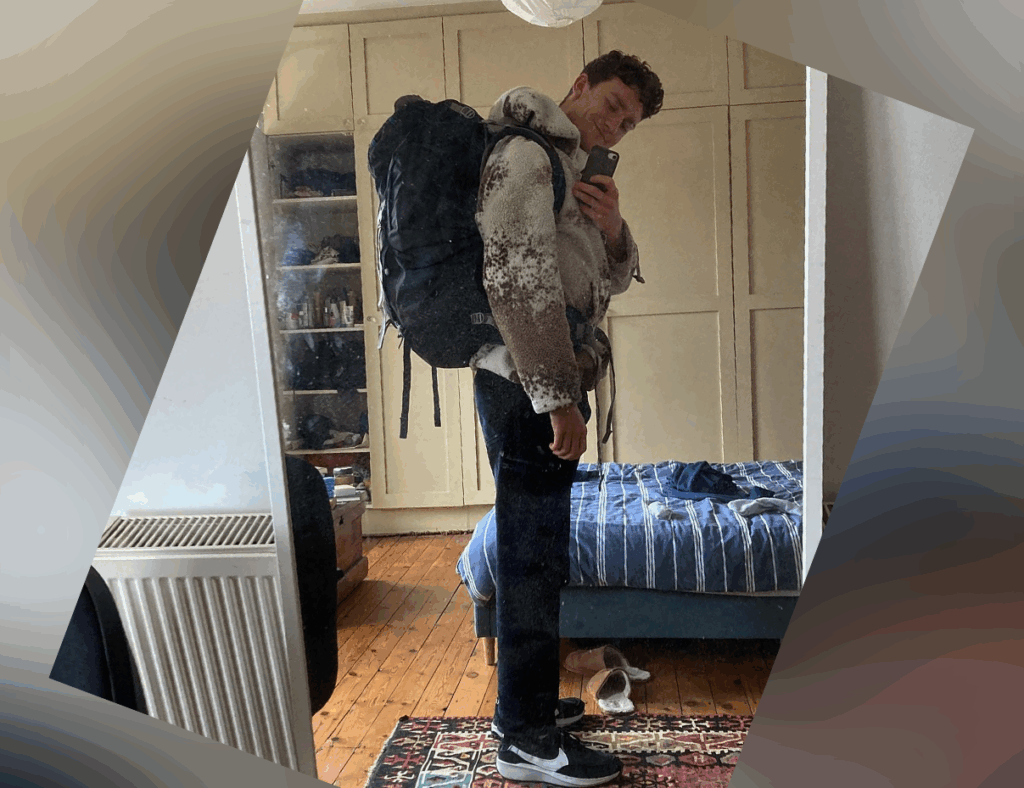
Boundless optimism or toxic positivity?
Even at this point, Emma didn’t complain, but I could tell she wasn’t happy. She, in turn, could tell that I was a little frustrated – although I myself couldn’t put my finger on what I was frustrated at. We agreed to give up when an elderly couple offered to drive us into Narbonne.
I found us a cheap room for the night, and what had been a bubbling tension for the past couple of hours came at last to the surface.
I was feeling a kind of vague annoyance – perhaps because the day felt characterised by tiredness and disappointment rather than whimsy and adventure – or perhaps because Emma didn’t seem to feel compelled to find a sense of romance in our costly detour.
Emma pointed out that our trip was meant to be time to switch off, spend quality time with each other, and explore new cities. Annual leave is a precious commodity, and she didn’t feel great using it to stand on the side of an autoroute and miss out on a night in Barcelona.
My sense of adventure and boundless optimism had gone too far, had twisted into something nefarious: toxic positivity. The worst part of it, said Emma, is that you can’t just let me be grouchy because of it.
After that night, the holiday went well. We made up, agreed to move on, and my travel planning (which was all train-oriented) encountered no further hiccups.
But over the next few months, my mind kept turning back to this idea of toxic positivity. It felt totally, terrifyingly accurate. What should I do about it? And why does it feel so hard to shake?

I idolised my Dad
My oldest friend once told me that I idolised my Dad more than anyone he knew when we were younger.
My Dad was a man who could win a pub quiz single-handedly. He could name a tree blindfolded by running his hand over its bark, or identify a butterfly flitting around a meadow and tell you why it was there (they thrive on chalk grasslands, for example).
He could explain to you how those chalk hills had formed from the remains of plankton that lived 80 million years ago and then, if you cared to listen, he would tell you about the people who lived in that landscape before the idea of England came to be.
He taught me how to chop and stack logs when I was young, and I took great pride in that.
He would often travel for work, a result of his consulting jobs that I did not understand but whose polysyllabic titles I would learn by heart and repeat to uninterested friends at primary school.
My dad was an alcoholic
I can’t remember when I first realised my dad was an alcoholic. It is a little like watching the ageing process of a famous footballer. They seem Forever Young. Then one day they are an Old Person, and you think to yourself “when did that happen?”
While I can’t remember realising he was an alcoholic, I do remember an adolescence littered with the kind of scenes you see in Hollywood depictions of alcoholism.
Seeing him stood at the bus stop with a black eye after he’d gone missing for the night. The first time we fought physically, the fear I felt, and the anger, and the fear at my own anger. Finding beer cans hidden behind the toilet cistern.
Horror and shame
Perhaps most firmly rooted in my mind is the time my first girlfriend’s parents drove me home. They parked the car outside my house and waited expectantly to be invited in. The horror and shame I felt as I made feeble excuses and encouraged them to leave are now one of my prevailing memories of that relationship.
Throughout this time, my Mum demonstrated superhuman resilience. But extricating yourself from an individual you are tied to financially, legally, and through the bonds of parenthood, is no simple thing.
At the time, rampant cuts to public services were eroding any kind of social safety net that may have made things more bearable – from reduced rural bus services to cuts to mental health support for young people.
It was too much for any one person to deal with. And so I grew up fast.
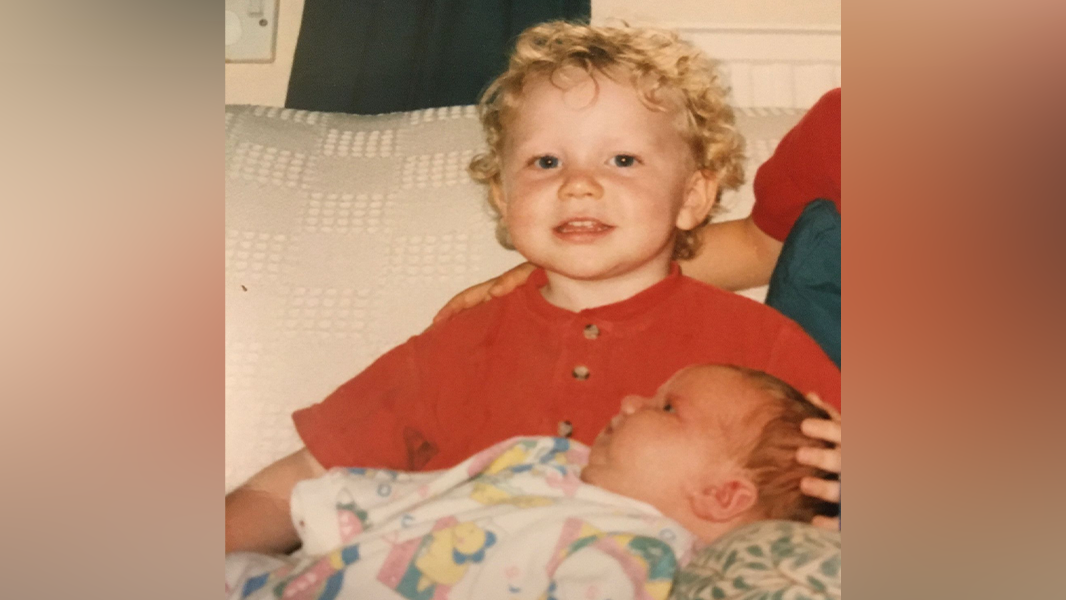
“I can endure this” became my mantra
As a son and a brother, I adopted a relentless belief that I could help my family get through this – the insecurity, the heartbreak, the financial stresses and strains. “I can endure this” became my mantra, because the alternative felt unbearable.
As a teenager, apart from a small number of confidantes, I learnt to conceal my life at home. I joked about and made endless silly plans that I would only occasionally carry out – leading a flotilla of airbeds and water lilos as far down the local river as possible, for example.
When I turned 18, I ventured further afield. I hitchhiked to Wales or Scotland, I went out in Birmingham until the nightclubs all closed and then slept rough on a park bench.
This is fun, I told myself, this is a great big adventure. I waited for hours by the roadside, feeling like a modern day Kerouac. And it was fun, and it was an adventure – but it was also something else.
I have wrestled with this part of myself – the part that wants to go through discomfort in order to prove to myself that it’s possible, that wants to flee from my current situation and see what lies beyond it.
I had no idea whether it was a positive thing, or a negative thing.
Am I resilient, or a fantasist? Am I kind and generous, or a people pleaser who can’t set boundaries? Will I really endure all this? Or will the future collapse into homelessness and oblivion, as it did for my Dad, who I once thought of as unassailable?
Realising there is a name for it
As I have grown a little older, I have grown to accept that it is possible to contain all of those things. My toxic positivity, or relentless optimism, is not cause for despair. But nor is it particularly something to be celebrated. I do not think it makes me better or worse than anyone else.
Acknowledging this helped, but it still felt a little uneasy – this labeless, contradictory mess. Then, I encountered Nacoa.
I have a vivid memory of speaking at my first Nacoa event, and realising in real time that there is, in fact, a name for the thing that I am: I am the child of an alcoholic.
My drive to take on responsibility, my need to mask negativity, my constant uncertainty about the future – these feelings are shared by millions of other children of alcoholics. They rear their heads in different ways, of course. But a common thread, I think, is that these feelings can be managed, maybe even sublimated into something positive, once they are accepted.
Today, I feel a deep sense of gratitude for my life.
I have friends who I love very dearly and know I can turn to in times of need, just as they can turn to me. I have a loving (and tolerant!) partner. And I own a business that is doing well and gives me a great sense of personal freedom.
I often think that if I could show my life today to 15-year-old me, he would be totally astounded that this contentment was possible.
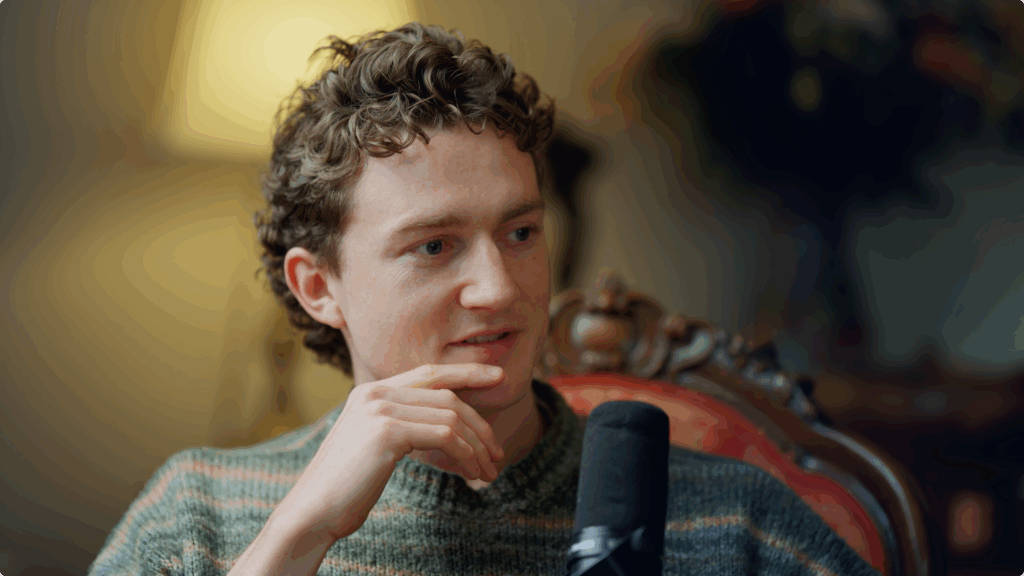
I am not alone
That’s why I am so grateful Nacoa exists, and why I’m so determined to spread the word.
There are so many children of alcoholics out there – whether they are young children, teenagers, or have been retired for years ––who may have spent years battling themselves, hiding how they are feeling while fearing that the future is going to swallow them up.
Just knowing that a community of people like you exists can be hugely powerful.
What Nacoa provides, more than anything, is that quiet reassurance that transforms a person’s outlook from despair to hope: the awareness that you are not alone.
George Billinge
To read more experience stories, go to Support & Advice.





















































































